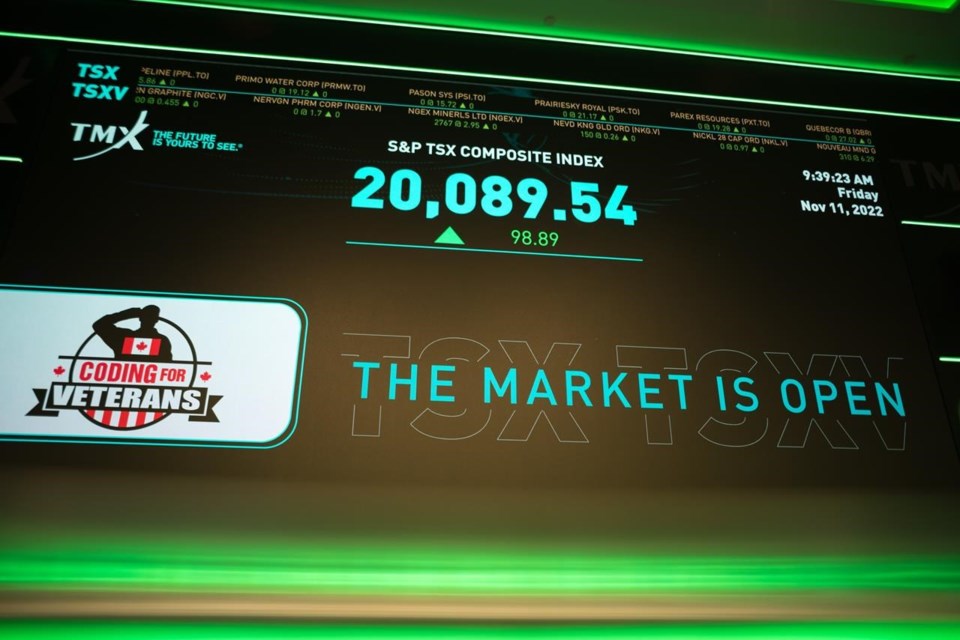TORONTO — Canada's main stock index gained almost one per cent Thursday, buoyed by strength in the energy and financial sectors, while U.S. markets also rose.
The S&P/TSX composite index was up 186.15 points at 20,211.20.
In New York, the Dow Jones industrial average was up 216.96 points at 34,189.97. The S&P 500 index was up 13.56 points at 3,983.17,while the Nasdaq composite was up 69.43 points at 11,001.10.
Markets were up on U.S. inflation data, which came in at consensus and showed price growth cooling, said Lesley Marks, chief investment officer of equity at Mackenzie Investments.
Inflation declined to 6.5 per cent year-over-year in December, the sixth straight year-over-year slowdown for the U.S., while on a monthly basis prices slipped one per cent, the first such drop since May 2020.
However, the gains on the markets were subdued compared to many of the economic releases over the past year, which often saw indexes swing up or down by large percentages as they reacted to positive or negative surprises in the economic data.
"Today was probably less drama than we've typically seen from a CPI report," said Marks. "But nevertheless, it was a positive report."
The positive inflation report signals that the Federal Reserve could think about slowing the pace of its interest rate increases, perhaps going with a quarter of a percentage point hike at its next meeting instead of half a percentage point, said Marks.
“I think that there is a good case here for both the Bank of Canada and the Federal Reserve to start being a little more patient, to see how the rapid pace of rate increases are going to impact the economy,” she said.
In the first two weeks of the new year, Marks noted that materials and healthcare have been the top performing sectors in Canada, with staples and energy at the bottom.
“It seems like the early trading days have been a bit of a reversal of what we saw last year,” she said.
“So in the short term, there's been a bit of a change in the things that are more sought after when it comes to equities.”
The TSX's energy index gained more than three per cent on Thursday, while financials gained almost one per cent.
The Canadian dollar traded for 74.75 cents US compared with 74.49 cents US on Wednesday.
The February crude oil contract was up 98 cents at US$78.39 per barreland the February natural gas contract was up two cents at US$3.70 per mmBTU.
The February gold contract was up US$19.90 at US$1,898.80 an ounce and the March copper contract was up three cents at US$4.20 a pound.
This report by The Canadian Press was first published Jan. 12, 2023.
Companies in this story: (TSX:GSPTSE, TSX:CADUSD=X)
Rosa Saba, The Canadian Press



